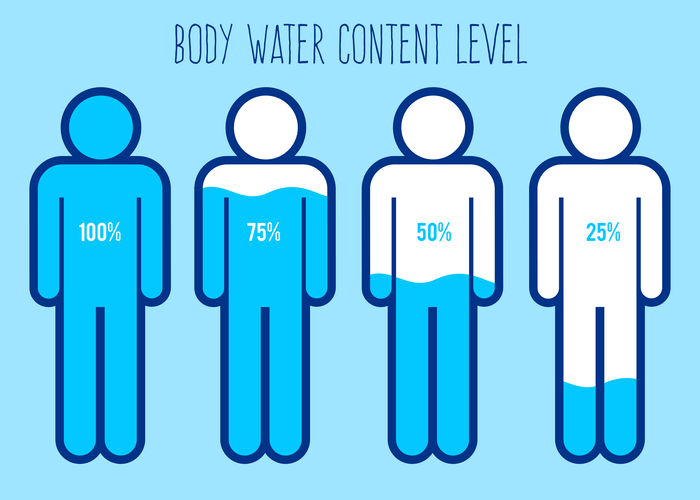Researchers know genetics contribute to its development, but the biological mechanisms are not fully understood. Studies on twins, family histories, and large-scale genetic research have explored inherited risk factors, yet no single gene has been identified. Findings point to a combination of genetic variations as well as other factors, showing that AUD is a complex disorder. GWAS arebeginning to yield robust findings, although the experience in many diseases isthat very large numbers of subjects will be needed.
Potential Benefits of Epigenetic Interventions
Too much alcohol affects your speech, muscle coordination and vital centers of your brain. This is of particular concern when you’re taking certain medications that also depress the brain’s function. Sign up to get info about the science behind addiction, the latest trends in addiction treatment, mental health awareness, inspirational recovery stories, and much more. Freedom is one of Canada’s leading and most innovative alcohol and drug addiction recovery homes. Freedom From Addiction is a leader in drug and alcohol addiction recovery, offering a host of superb addiction treatment programs and services for youth, adults, families and employers. If you have a family history of Alcohol Use Disorder, it’s essential to is alcoholism a genetic disease be proactive about your health.
Treatment may cost less today – act before your deductible resets.
Science continues to explore the causes of alcohol dependence and the best treatments for it. For example, areview of 12 different adoption and twin studies foundthat genetics explain roughly 50% of alcohol use disorder developments, showing a strong link between alcoholism and genetics. However, just because someone’s parents do not have AUD does not mean they won’t develop it. The opposite is also true; just because AUD runs in your family does not mean you will have the disorder.
Factors that Increase Risk of Alcohol Use Disorder (AUD)
“We know now that it was only a first step of a very long road of what is Oxford House complex genetics,” said Renato Polimanti, a colleague of Gelernter at the Yale School of Medicine. In contrast to Angier’s conclusion that AUD is decided by the environment, scientists have since found multiple genetic players. Alcohol is metabolized primarily in the liver, although thereis some metabolism in the upper GI tract and stomach. The first step in ethanolmetabolism is oxidation to acetaldehyde, catalyzed primarily by ADHs; there are 7closely related ADHs clustered on chromosome 4 (reviewed in20).
However, as our understanding of the genetic basis of the disease continues to expand, gene therapy may become a viable option for those with a high genetic risk of alcoholism. Studies have shown that alcohol enhances the effects of GABA in the brain, resulting in feelings of relaxation and sedation. Individuals with certain variations of the GABA receptor gene may experience a stronger response to alcohol, increasing their risk of developing an addiction. However, genetic predisposition alone does not determine alcoholism; environmental factors and behavioral patterns shaped by environmental and psychological factors also play a significant role. Researchers further suggested that 40% to 60% of people with alcohol use disorder (AUD) have genes that increase their risk of developing an addiction. Alcoholism, a somewhat commonly used term, yet there is still a lot of mystery and stigma.
- Research suggests that individuals with a genetic predisposition to alcoholism may be more susceptible to the negative effects of these environmental factors, leading to an increased risk of developing the disease.
- That is, some people do not tolerate alcohol, and their consumption causes headaches, nausea, etc., even in small quantities.
- Pharmacogenetics seeks to identify genetic markers that can predict an individual’s response to specific medications used in alcoholism treatment.
- In their study, the Yale team discovered that the risk genes were correlated to changes in certain brain regions.
- Understanding the role of the ALDH gene in alcohol metabolism is crucial for comprehending the genetic predisposition to alcoholism.
While many studies have been done, and experts agree that there is a hereditary connection, genetics is not the only factor, and we don’t quite know the full impact it has on alcoholism. The ALDH gene, also known as aldehyde dehydrogenase, plays a crucial role in alcohol metabolism in the body. It is responsible for breaking down acetaldehyde, a toxic byproduct of alcohol metabolism, into acetate, which can be further metabolized and removed from the body. If you’re concerned about your drinking, take our self-assessment or connect with a treatment provider today. For those with mild to moderate AUD, as well as taking into account other logistical factors, intensive outpatient programs (IOP) provide structured treatment while allowing people to continue living at home. They involve several weekly therapy sessions, focusing on relapse prevention strategies, behavioral change, and medication management.
A person who tolerates higher amounts of alcohol has a higher risk of AUD over time. A healthcare professional can provide an accurate diagnosis, recommend the most suitable treatment plan, and monitor progress, ultimately offering a path toward recovery and improved quality of life. Having a close family relative, such as a parent, can account for up to 60% of your risk of developing AUD.
The journey to well-being and the first steps to recovery begin with medical detoxification, followed by rehabilitation, and continuing with long-term relapse prevention. The severity of your addiction is determined by how many criteria you have met, with two or three signifying a mild addiction and six or more signifying a severe SUD. If someone has a mutation in this area and does not produce enough GABA while sober, they are likelier to abuse alcohol to feel better. Note that the official names of several ADH genes have been changed, and theliterature has been confused by some groups using non-standard names for some ofthe genes29.
By understanding an individual’s genetic predisposition to certain side effects, doctors can adjust the medication dosage or choose a different medication altogether to ensure the safety and well-being of the patient. Epigenetic interventions for alcoholism aim to reverse or mitigate the harmful effects of these modifications on gene expression. One potential approach is the http://lateroll.broughtondesigns.com.au/?p=1172 use of drugs that target enzymes involved in DNA methylation or histone modification, thereby restoring normal gene expression patterns. Another approach is the use of behavioral therapies that can modulate epigenetic processes, such as mindfulness-based interventions or cognitive-behavioral therapy. Living in an unhealthy environment can negatively impact your decisions regarding how much or how little to drink. If you are already at risk of AUD due to genetics, it is critical to determine what role your environment may play in your drinking habits.


